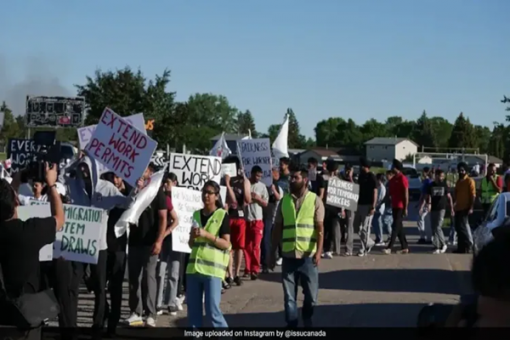
Thousands of international students are protesting across Canada in response to the government’s decision to limit study permits and reduce nominations for permanent residency. This move threatens over 70,000 international graduates with potential deportation due to recent federal immigration policy changes.
Prime Minister Justin Trudeau announced a reduction in temporary foreign workers for low-wage jobs, intensifying the backlash. The situation stems from the 2021 abolition of work permits under the Post-Graduation Work Permit (PGWP) program, followed by a two-year cap on international student visas implemented last year. This has led to increased pressures on housing, employment, and other services.
International students, who represented 37% of study visa holders in Canada in 2023, are now facing a 35% reduction in visa intake. Additionally, since June, foreign nationals can no longer apply for a PGWP at the border, impacting many students’ chances of securing employment and permanent residency.
Protests have erupted across Canada, with rallies and encampments set up in provinces like Prince Edward Island (PEI), Ontario, Manitoba, and British Columbia. In PEI, hundreds have been demonstrating outside the legislative assembly for over three months.
Representatives from the Naujawan Support Network, a student advocacy group, have warned that many graduates are at risk of deportation when their work permits expire at the end of the year, especially with new provincial policies reducing permanent residency nominations by 25%.
“I spent six years taking risks to come to Canada. I studied, worked, paid taxes, and earned enough Comprehensive Ranking System (CRS) points, but the government has taken advantage of us,” said Mehakdeep Singh, a former international student facing deportation. Singh, who invested his family’s life savings in tuition, now faces an uncertain future without a guarantee of permanent residency.
Marc Miller, Minister of Immigration, Refugees and Citizenship, emphasized that the June decision targets “flagpoling,” where temporary residents exit and re-enter Canada to expedite work or study permit applications. The PGWP remains a critical pathway for international students seeking employment and permanent residency, which has seen a significant rise in issuance since 2018.







